DUI
J Moore Law LLC: Camden County NJ DUI Lawyer
Facing a DUI, refusal or similar charge in New Jersey? It is critical to understand your legal situation and contact an experienced Camden County NJ DUI Lawyer who can assist you by explaining your rights and providing you with the best possible defense.
Drunk driving, also known as driving under the influence (DUI), is a serious criminal offense in New Jersey that can result in severe penalties. Drivers who are found to be impaired by drugs or alcohol may face license suspension or revocation, significant monetary fines, and possible jail time.
If you or someone you know is facing a DUI charge, it is understandable to feel fear, frustration, and, most importantly, confusion about what to do next.
Definition of Impairment
In New Jersey, drunk driving is defined as operating a motor vehicle with a Blood Alcohol Concentration (BAC) of 0.08 percent or higher. The amount of alcohol in your blood is referred to as your BAC. Although the law refers to a 0.08 percent BAC, you can be convicted of driving while intoxicated even if your BAC is less than 0.08 percent. Even small amounts of alcohol dull the senses, slow reaction time, and impair judgment, vision, and alertness. You can be charged with drunk driving if you consume any amount of alcohol and your driving is impaired. It is also illegal to operate a motor vehicle while under the influence of a narcotic, hallucinogenic, or habit-forming drug. You can also be convicted of allowing another person to operate a motor vehicle while that person is driving while intoxicated (DWI). The following is a summary of the penalties that result from a violation of New Jersey’s DWI law.
The Penalties
1st Offense
Under New Jersey Law (P.L. 2003, CHAPTER 314), if an offender’s BAC is 0.08 percent or higher, but less than 0.10 percent, or if an offender permits another person with a BAC over 0.08 percent, but less than 0.10 percent to operate a motor vehicle, the penalties are:
-
- A fine of $250-$400
- Imprisonment for up to 30 days
- Driver’s license forfeiture until ignition interlock installed. Interlock required for 3 months
- A minimum of six hours a day for two consecutive days in an Intoxicated Driver Resource Center
- An automobile insurance surcharge of $1,000 a year for 3 years
If the offender’s BAC is 0.10 percent but less than 0.15 percent, or permits another person with a BAC of 0.10 percent but less than 0.15 percent to operate a motor vehicle, the penalties are:
-
- A fine of $300-$500
- Imprisonment for up to 30 days
- Driver’s license forfeiture until ignition interlock installed. Interlock required for 7 months to one (1) year
- A minimum of six hours a day for two consecutive days in an Intoxicated Driver Resource Center
- An automobile insurance surcharge of $1,000 a year for 3 years
Offenders with a BAC of 0.15 percent or higher must install an ignition interlock device in one vehicle they principally operate during the license suspension period of 4 to 6 months and for a period of 9 months to 15 months after license restoration.
2nd Offense
-
- A fine of $500-$1,000
- Imprisonment of at least 48 consecutive hours, and up to 90 days
- Minimum 1-year and up to 2-year license suspension
- Completion of evaluation, referral and program requirements of the IDRC n30 days of community service
- An automobile insurance surcharge of $1,000 a year for 3 years
- Installation of an ignition interlock device for a period of license suspension and 2 years to 4 years after license restoration
3rd Offense
-
- A fine of $1,000
- Imprisonment of 180 days except the court may lower such term for each day, not exceeding 90 days, served in a drug or alcohol inpatient rehabilitation program approved by IDRC n8 year license suspension n30 days of community service
- Completion of evaluation, referral and program requirements of the IDRC
- An automobile insurance surcharge of $1,500 a year for 3 years
- Installation of an ignition interlock device for a period of license suspension and 2 years to 4 years after license restoration
Any offense also carries
-
- A $100 surcharge to be deposited in the Drunk Driving Enforcement Fund
- A Motor Vehicle Commission restoration fee of $100 and an Intoxicated Driving Program fee of $100
- A Violent Crimes Compensation Fund fee of $50
- A Safe and Secure Community Program fee of $75
Consequences of Underage Drinking and Driving
In New Jersey, you must be at least 21 years of age to purchase, possess or consume alcoholic beverages. Underage drinking is illegal and can have severe consequences for young people who drink and for adults who provide alcoholic beverages to those under 21. If you are under 21 and buy or drink alcohol in a place with an alcoholic beverage license, you may be fined $500 and lose your driver license for six months. If you do not have your license, the suspension starts when you are first eligible to receive a license. Also you may be required to participate in an alcohol education or treatment program. If you are under 21, drive with any detectable amount of alcohol in your system (.01 BAC or above) and are convicted for violating New Jersey’s zero tolerance law, the penalties are:
- Loss or postponement of driving privileges for 30 to 90 days
- 15 to 30 days of community service
- Referral to an IDRC or participation in an alcohol and traffic safety education program
If you have been charged with Underage DUI and/or have questions about the penalties, please contact a Camden County NJ DUI Lawyer, like us at J Moore Law LLC.
Registration Revocation/Ignition Interlock
In addition to the DUI penalties listed above, the judge may order the revocation of the vehicle registration (Public Law 2000, Chapter 83). Additionally, the ignition interlock device, which measures the driver’s blood alcohol level, may be required for up to four years following license restoration after a DWI conviction. Any person may start a motor vehicle equipped with an interlock device for safety reasons or to repair the device or motor vehicle, but the convicted offender may not operate the vehicle. A person who, on behalf of the convicted offender, blows into an interlock device to start a motor vehicle or tampers with the device to circumvent its operation may be charged with a disorderly persons offense.
DUI Refusal
Refusing to take an Alcotest (breathalyzer test) after a DUI/DWI traffic stop is an offense in New Jersey that can result in severe penalties in addition to the penalties for drunk driving. If you refused to take a breath test, it is critical that you consult with a Camden County NJ DUI Lawyer who is familiar with the law and can assist you in minimizing the consequences of your arrest.
Refusal and Implied Consent
In New Jersey, the penalties for refusing an Alcotest are based on the law of “implied consent.” New Jersey Statute 39:4-50.2 states:
“Any person who operates a motor vehicle on any public road, street, highway, or quasi-public area in [New Jersey] shall be deemed to have consented to the taking of samples of his breath for the purpose of making chemical tests to determine the content of alcohol in his blood; provided, however, that the taking of samples is made… at the request of a police officer who has reasonable grounds to believe that such person has been operating a motor vehicle [w]ith reasonable grounds to believe that such person has been operating
In other words, simply driving on New Jersey’s public roads makes you legally obligated to submit to a breath test if a police officer has “reasonable grounds” to suspect you of driving while intoxicated. While there are advantages to refusing a breath test in some states, we generally recommend that drivers in New Jersey agree to take a breath test when pulled over for DUI/DWI.

Refusal Penalties
If you refuse an Alcotest in New Jersey, you can be charged with violating the “implied consent” law in addition to being charged with driving while intoxicated. This means that you can face penalties (and conviction) for two separate offenses. The penalties for refusing to take a breathalyzer test in New Jersey include:
- 1st offense – $300-$500 fine and a license suspension until ignition interlock device installed. A minimum of six hours a day for two consecutive days in an Intoxicated Driver Resource Center
- 2nd offense – $500-$1,000 fine and a 1 to 2-year license suspension following installation of ignition interlock device. 48 hours consecutive detainment in Intoxicated Driver Resource Center
- 3rd offense – $1,000 fine and an 8-year license suspension following installation of ignition interlock device
- Installation of an ignition interlock device for a period of 9 to 15 months after license restoration for the 1st offense, 2 years to 4 years for the 2nd and 3rd offenses
- Automobile insurance surcharge of $1,000 a year for 3 years for 1st and 2nd offenses, $1,500 for 3rd offense
- A $100 surcharge to be deposited in the Drunk Driving Enforcement Fund
- Referral to an Intoxicated Driver Resource Center

Defenses to DUI
If you are charged with driving while intoxicated, you may be able to file a pretrial motion to suppress evidence obtained by law enforcement in violation of the United States Constitution or New Jersey law. By filing such a motion, you may be able to prevent the prosecution from introducing crucial evidence that cannot be used against you.
Motion to Suppress Evidence from a Traffic Stop Because of a Lack of Probable Cause
A challenge to law enforcement’s reason for pulling you over is one of the most common grounds for a motion to suppress evidence in a DWI case. Before conducting a traffic stop, police officers must have a reasonable suspicion—based on specific, articulable facts—that a violation has occurred. They must also have probable cause to arrest you for DWI, which means they must have had a reasonable suspicion that you were driving under the influence before arresting you.
For example, if an arrest report states that you failed to stop at a stop sign, prompting a police officer to pull you over to write you a ticket, at which point the officer noticed that your breath smelled like alcohol, prompting the officer to expand the stop into a DWI investigation, you could potentially produce surveillance or police dash cam footage demonstrating that your car did indeed come to a stop at the stop sign. That evidence calls into question whether the officer had reasonable suspicion to stop you.
In that case, you could file a motion asking the court to suppress all evidence and statements obtained by the police as a result of the illegal traffic stop (illegal because you would have established that you did not roll through the stop sign), effectively eliminating all evidence available to the prosecution in your DWI case.
Intoxication is established by suppressing breath test results
Your chemical test result is often the most powerful evidence against you in a DWI prosecution, provided that the test result shows your blood alcohol concentration was greater than .08 at the time you were pulled over in your car. It is possible to successfully file a motion to suppress chemical test results by demonstrating that the results were not the result of reliable principles and methods. This can be accomplished by demonstrating that the testing machine was not properly maintained, that its operator was not properly trained, or that the testing machine was not of a type that law enforcement or scientific communities could reasonably rely on.
Remove any statements about alcohol or drug use
Motions to suppress can also be used to challenge admissions made while in police custody. If you were detained, handcuffed, placed in a police car, or otherwise led to believe that you were not free to leave during your DWI investigation, and were not given your Miranda warnings prior to the police asking you questions about how much alcohol you consumed before driving, any drugs you may have been taking, or whether you were feeling the effects of alcohol and/or drugs, a motion to suppress may be successful.
Additional Strategies for Winning a DWI Case in New Jersey
These are just a few examples of potentially crucial motions to suppress that can be filed to protect your constitutional rights and ensure that evidence obtained in violation of state or federal law is not used against you during your trial. Others may include contesting the CAD report, discovery issues, failure to observe 20 minute observation period, challenges to the Field Sobriety test and many others.
Your defense to a DWI charge begins the moment you are pulled over on the road. Your DWI attorney will question you extensively and will want to know everything that happened from the moment you were pulled over. This is why it is critical to contact a Camden County NJ DUI Lawyer as soon as possible after the incident. The longer you wait, the less likely you are to remember the interaction, and the less likely your attorney is to be able to assist you.
Why is it critical to examine every detail of your interaction with the officer who pulled you over? Because, whether you are driving under the influence or not, you have certain rights that police officers must respect. If any of those rights have been violated, you may have a defense to your DWI case.
Consulting an Attorney
Driving under the influence of drugs or alcohol is a serious offense, and New Jersey has some of the strictest DUI laws in the country.
If you are a first-time offender or face a second, third, or fourth charge, do not attempt to handle it on your own.
You need someone on your side who has represented people in your situation, is familiar with the New Jersey court system, and will assist you in protecting your rights. Contact a skilled Camden County NJ DUI Lawyer right away.
HOW J MOORE LAW LLC CAN HELP YOU IN OTHER CASES
J Moore LLC provides free consultation on various legal issues like
- DUI
- Domestic Violence
- Assault
- Gun Charges
- Drug Crimes
- Traffic Tickets
And many others.
We practice locally in areas like:
- Camden
- Collingswood
- Cherry Hill
- Gloucester Township
- Winslow
- Pennsauken
- Voorhees
- Lindenwold
- Haddon Township
- Gloucester County
- Burlington County
And all other locations throughout New Jersey!



